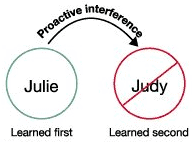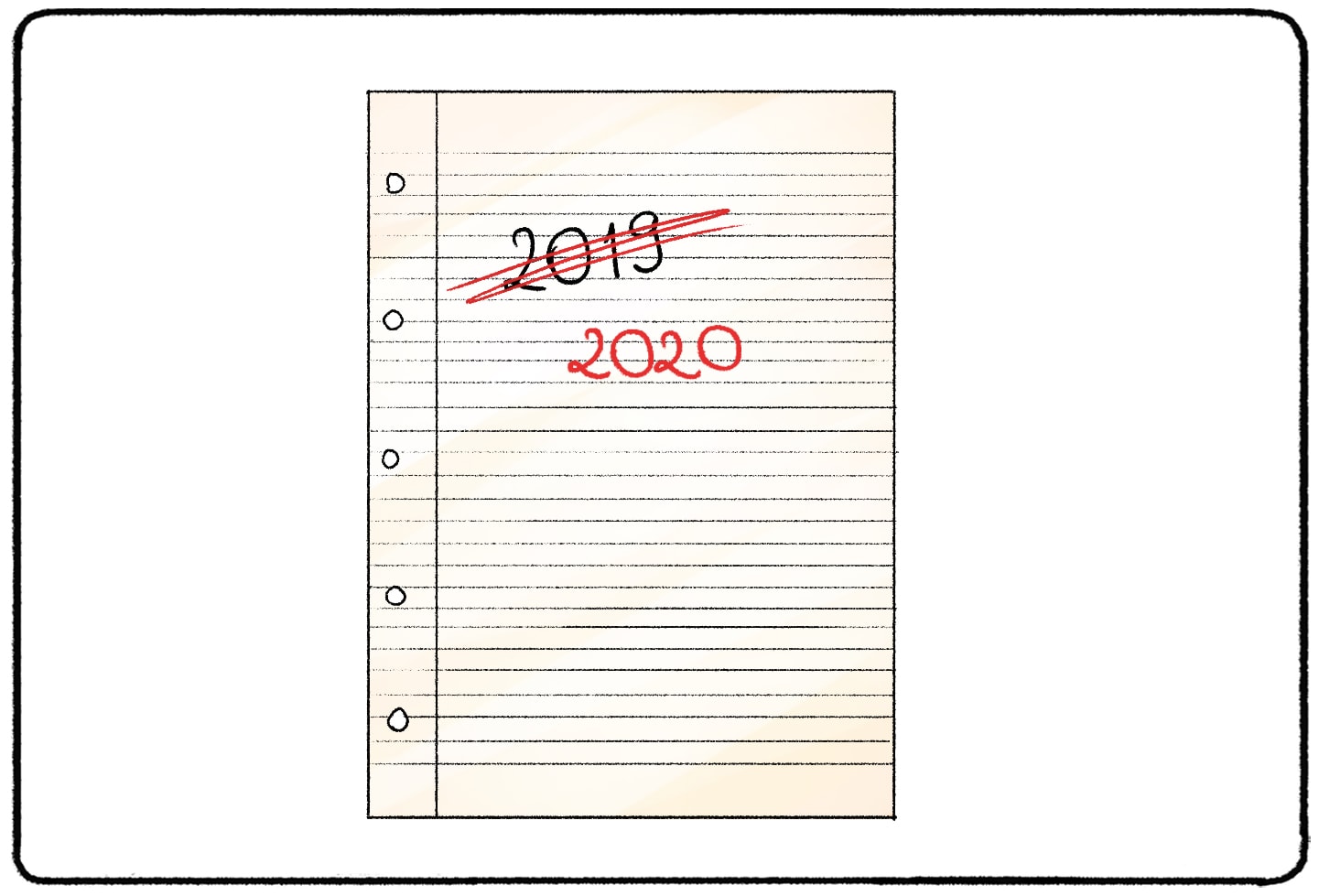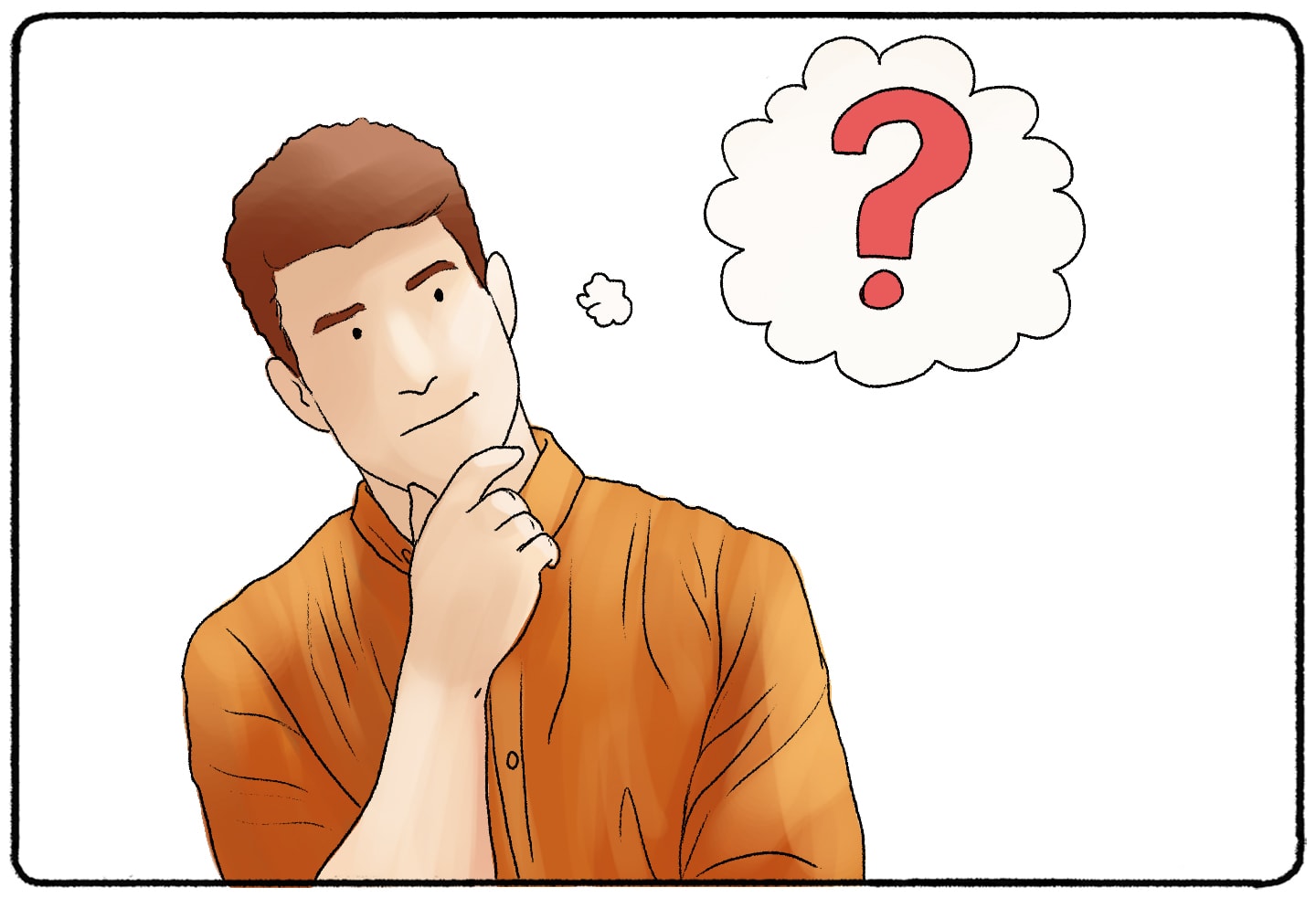Want to see examples of Proactive Interference to help you learn what the definition is? This page will be your best friend.
Let’s say you spent a few years in high school learning a second language - we’ll go with French. Years later, you take up Spanish. As you try to come up with Spanish words in conversation or on a test, you find yourself saying the same words, but in French!
What is Proactive Interference?
Proactive interference, also known as proactive inhibition, occurs when old memories interfere with your ability to encode and retrieve new information. Psychologists theorize it's difficult to create a new memory that contradicts or is too similar to older memories, like the Spanish or French translation of the same word.
There are two types of interference: proactive and retroactive interference. If you have experienced an interference like in the situation I mentioned earlier, you experienced proactive interference. This is a type of interference where old memories interfere with your ability to make new memories. Proactive interference is also commonly known as proactive inhibition.
Older adults are more likely than young adults to experience proactive interference. It makes sense - they’ve got a lot more memories stored away that can interfere with new memories. Maybe when the phrase “you can’t teach an old dog new tricks” was created, the old dog was just unable to learn the tricks due to proactive interference!

Examples of Proactive Interference
A lot of examples of proactive interference appear to be things that we have done out of habit. In fact, changing one habit to another is a form often creates proactive interference.
For example, after January 1st, everyone slips up and writes the old year down once or twice. It may take weeks for people to write the correct year because the memory of writing the old year down is interfering.
This may also happen when someone changes their name or pronouns. The memory of the person’s former name or pronouns may come to mind in conversation and you slip up.
One last example of proactive interference commonly appears if you are learning a new sport or hobby. Upon learning the rules of baseball, you might accidentally flub and use terms that are specific to basketball, football, or another sport that you learned before baseball.
Multiple lists of information may also result in proactive interference. In most studies involving this theory, participants use lists as a way to assess whether proactive interference is present.
Example 1: Writing Down the Old Year
Writing down the date in January can be a struggle. You feel like you’ve just gotten used to writing the right year and then it’s time to write the new year. This is a classic example of proactive interference. Old memories or habits of writing 2019 get in the way of writing 2020. If you get a new phone number or a new address, the same thing might occur.

Example 2: Learning a New Language
Learning multiple languages can be hard. The oldest information - the language you are fluent in - may frequently interfere with the new information that you are trying to learn. But if you are learning a third or fourth language, that second language may also try and interfere.
Let’s say you are learning Spanish, but you’re already fluent in English and have spent many years learning Italian. If you accidentally let an English or Italian word slip while trying to speak Spanish, you can blame proactive interference for the flub.
Example 3: New Students
If you’re a teacher, learning 20 or more students’ names can be difficult. Teachers with 5 or more years of experience have over 100 names lodged in their memories from over the years. If a teacher accidentally calls a new student by another student’s name (maybe their older brother or sister,) they can blame the mistake on proactive interference.
Example 4: Learning Proactive and Retroactive Interference!
If you have learned about proactive interference, it’s likely that you have also learned about retroactive interference. Let’s say you learned about retroactive interference first - it occurs when new memories get in the way of recalling older memories. That information is stuck in your head when you try to learn what proactive interference is. That’s proactive interference at work - the older information about retroactive interference is holding you back from trying to create new memories!

Studies on Proactive Interference
Hanley and Scheirer were the first scientists to look at proactive interference back in 1975.
While multiple studies have looked at the existence of proactive interference, there is still work to be done about how it happens in the brain. Some studies suggest that Proactive Interference could happen to any memory, whether it has been stored away for a long time or is freshly learned. Other studies suggest that Proactive Interference only occurs in working memory.
Proactive Interference And Alzheimer's Patients
Memory interference, proactive and retroactive is linked to degenerative diseases like Alzheimer's. Research is currently being conducted on whether susceptibility to proactive interference is an indication of Alzheimer's or similar conditions.
How to Reduce Proactive Interference
Another question that frequently comes up concerns how to prevent proactive interference. How can you reduce the chance that you will use a French word instead of a newly-learned Spanish word?
One study suggests that being exposed to and aware of proactive interference can help to diminish its effects. When participants were exposed to multiple experiences that could cause proactive interference, they were less likely to continue to be affected by proactive interference.
Other Types of Interference and False Memories
Proactive interference is just one type of interference. The other type of interference appears to be the opposite. And in addition to these two phenomena, there are many types of false memories and memory errors!
